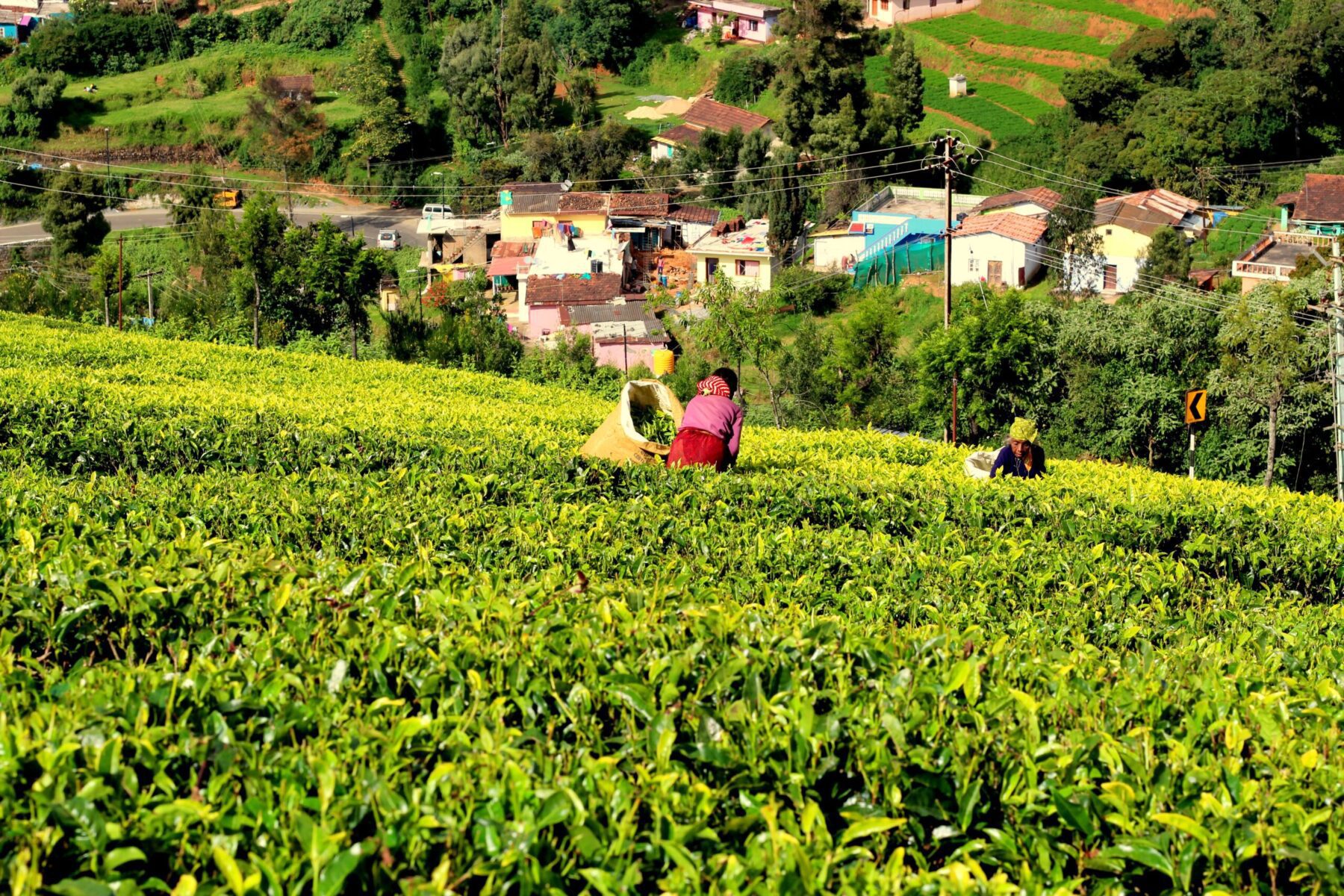Tea is a centuries-old hot beverage drunk everywhere, from the shores of England to the idyllic mountains of Japan. Thanks to the work of global companies like Yogi Tea and Twinings, you can find countless options at stores. While they have worked to export the best leaves and botanicals for our consumption a changing climate is impacting farmers’ livelihoods. To return to more ethical and sustainable sourcing, Yogi and Twinings have set out on a more holistic approach to getting their products in peoples’ mugs worldwide.
With natural disasters increasing in frequency and intensity, exporting tea has become more challenging. Fields are threatened by soil erosion and flooding, while farmers are concerned about their income.
It’s important to recognize the environmental impact of the tea trade. For a more transparent look at the waste generated by Yogi’s corporate operations, the company set up Green Teams that track waste streams and water use at the global headquarters in Oregon and Italy. Yogi’s sustainability report from 2021 found that brewing accounts for 37% of total emissions, while transportation and travel were surprisingly low in this regard.
In response, Yogi has set up significant emission offset campaigns. Efforts included purchasing hours of carbon offsets from wind farms for renewable energy and supplying company ships with biofuels. The global headquarters in Hamburg, Germany, also turned 300 square meters of parkland into a wild bee sanctuary to support pollination.
Yogi has not left its employees and suppliers in the dark regarding more sustainable and ethical sourcing. To address soil erosion in tea fields in countries like India and Africa, the company has taught local farmers crop rotation and crop covering to keep the soil fertile. Yogi’s products must be grown and sourced organically; protective plants substitute pesticides to combat weeds and pests. An emphasis on regenerative farming has resulted in more carbon-retaining planting projects within the industry.
Twinings is also jumping into the sustainability pool, focusing on education and awareness for its field workers. Its campaign, Sourced with Care, aims to improve the quality of life for farmers in tea-producing countries. Twinings has successfully helped over 543,000 people — more than 100,000 women and young girls — assisting with healthcare and employment security.
In addition, Twinings has been committed to ensuring all farmers are given a wage that can fruitfully support them. One way the firm does this is through microloans.
They support equitable wages for men and women, plus financial and business management education. The company also worked with farmers in Guatemala and China for improved agricultural practices.
“Having a stable income and enough to meet your needs and those of your family is crucial for a decent quality of life,” said Hubert Chen, ethical sourcing manager at Twinings. “Too often, a lack of knowledge in tea communities about good farming practices, skills, technology, and access to market hinders families’ income opportunities.”
All Twinings tea must be 100% ethically sourced, meaning no exploitative farming practices. Now, it must also come with a low climate impact and improved working conditions.
Yogi and Twinings’ have focused their efforts on Guatemala, their primary cardamom supplier that is still adapting to adverse environmental impacts. So far, the two companies have trained 500 local farmers on sustainable agroforestry practices, plus 750 people have received technical training for a diversified agricultural skillset. The collaborative change is designed to boost workers while preserving the land for future generations. Further, the companies gave 16 schools better access to water and sanitation sources.
Teaching local farmers more eco-friendly methods is essential for employee morale alongside a more sustainable supply chain. Both Twinings and Yogi are members of nonprofit organizations dedicated to protecting ethical sourcing and regenerative farming. The Sustainable Spices Trade, Ethical Tea Partnership, and Sustainable Herbs Program are all committed to keeping tea agriculture conscientious and fairly priced.
“We want to ensure these farming communities are thriving and farmers are being fairly rewarded for their hard work nurturing the finest organic products,” said Ian Brabbin, Yogi’s vice president of global sourcing and sustainability.





